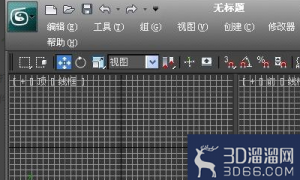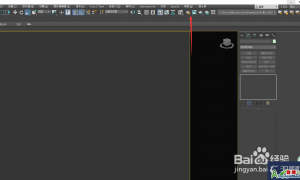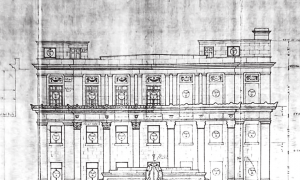|
Case Real是一家位于日本福冈的建筑及室内设计工作室,由创始人二田浩一(Koichi Futamata)成立于2000年。工作室专注于产品家具设计、室内以及建筑设计。他们从本质上认识到存在的空间,是通过使用来自环境、目的和问题所衍生出来的创意和方法。 Case Real is an architecture and interior design studio based in Fukuoka, Japan, founded in 200 0by founder Koichi Futamata. The studio focuses on product furniture design, interior design and architectural design. They essentially recognize the space of existence through the use of ideas and methods derived from circumstances, goals, and problems. 创始人二田浩一是一位产品、空间设计师,主要活跃于东京和福冈。他于1998年开始了他的设计师生涯,并以室内、建筑、家具和产品设计等广泛的项目而闻名。1975年出生于鹿儿岛,1998年毕业于九州产业大学工程学院的建筑系。2013年在同一办公室成立了自己的同名工作室Koichi Futamata Studio。目前,他负责主持专业于空间设计的Case Real和专注于产品设计的Koichi Futamata Studio。 Founder Koichi Ida is a product and space designer based in Tokyo and Fukuoka. Since 1998, he has focused on the design of interior and architecture to furniture products at home and abroad. Born in Kagoshima in 1975, he graduated from the Department of Architecture, School of Engineering, Kyushu Sangyo University in 1998. In 2013, he founded his namesake Koichi Futamata Studio in the same office. Currently, he is in charge of Case Real, which specialises in space design, and Koichi Futamata Studio, which specialises in product design. 二田浩一(Koichi Futamata)认为精心制作的细节是他的风格,同样他追求个人的感觉。即使概念和整体氛围很好,如果细节很草率,他觉得一个空间是不完整的。这对他来说很重要,因为设计是要恰到好处的,不会感觉任何的不舒适。当走进一个空间和触摸这个产品时,能立即感受到的东西。要做到这一点,唯一的方法就是让每个细节都恰到好处。 Koichi Futamata considers elaborate detail to be his style, as does his quest for a personal touch. Even if the concept and overall atmosphere are good, if the details are sloppy, he feels that a space is incomplete. This was important to him because the design had to be just right without feeling any discomfort. Something that is immediately felt when you walk into a space and touch this product. The only way to do this is to get every detail just right. Case Real的一些设计给人一种正宗的日本风格的印象,他们的作品是具有“日本性”。但是对设计师来说,他们没有一个日本设计角度的标准。他们始终认为细节构成了一种“世界观”和“深度”,而这些就是日本人的情感或特征。工作室很注意材料和颜色的搭配,认为一个空间的“正确性”是通过在设计中考虑这些细节来决定的。 Some of Case Real's designs give an impression of authentic Japanese style, and their works are "Japanese". But for designers, they don't have a standard for a Japanese design perspective. They have always believed that details constitute a "worldview" and "depth", and these are the emotions or characteristics of the Japanese. The studio pays great attention to the combination of materials and colors, believing that the "correctness" of a space is determined by considering these details in the design.
| 
 cad许可管理器不起作用或未正确安装。现在
AutoCAD许可证管理器错误可通过检查服务状态、重新安装许可组件或禁用冲突软件解决
cad许可管理器不起作用或未正确安装。现在
AutoCAD许可证管理器错误可通过检查服务状态、重新安装许可组件或禁用冲突软件解决
 3Dmax怎么调出VRAY材质编辑器?
VRAY是3Dmax里面很常见的一个插件,我们想要在3Dmax不仅需要安装,还需要在对应的入口
3Dmax怎么调出VRAY材质编辑器?
VRAY是3Dmax里面很常见的一个插件,我们想要在3Dmax不仅需要安装,还需要在对应的入口
 3DMAX装完vray后怎么在渲染时调出
3Dmax经常搭配vray使用,但有的小伙伴VRay安装完了,但是渲染设置里没有,或者不知道3
3DMAX装完vray后怎么在渲染时调出
3Dmax经常搭配vray使用,但有的小伙伴VRay安装完了,但是渲染设置里没有,或者不知道3
 走进中山纪念堂,了解一代大师吕彦直
我去过中山纪念堂很多次,大多是去看公益演出。有时路过,也会被它的外观吸引,不自
走进中山纪念堂,了解一代大师吕彦直
我去过中山纪念堂很多次,大多是去看公益演出。有时路过,也会被它的外观吸引,不自
 业师和雇主眼中的吕彦直—— 一份 1928 年
编者按:
2024年是吕彦直先生(1894年7月28日-1929年3月18日)诞辰130周年。他是中
业师和雇主眼中的吕彦直—— 一份 1928 年
编者按:
2024年是吕彦直先生(1894年7月28日-1929年3月18日)诞辰130周年。他是中
 cad许可管理器不起作用或未正确安装。现在
AutoCAD许可证管理器错误可通过检查服务状态、重新安装许可组件或禁用冲突软件解决
cad许可管理器不起作用或未正确安装。现在
AutoCAD许可证管理器错误可通过检查服务状态、重新安装许可组件或禁用冲突软件解决
 3Dmax怎么调出VRAY材质编辑器?
VRAY是3Dmax里面很常见的一个插件,我们想要在3Dmax不仅需要安装,还需要在对应的入口
3Dmax怎么调出VRAY材质编辑器?
VRAY是3Dmax里面很常见的一个插件,我们想要在3Dmax不仅需要安装,还需要在对应的入口
 3DMAX装完vray后怎么在渲染时调出
3Dmax经常搭配vray使用,但有的小伙伴VRay安装完了,但是渲染设置里没有,或者不知道3
3DMAX装完vray后怎么在渲染时调出
3Dmax经常搭配vray使用,但有的小伙伴VRay安装完了,但是渲染设置里没有,或者不知道3